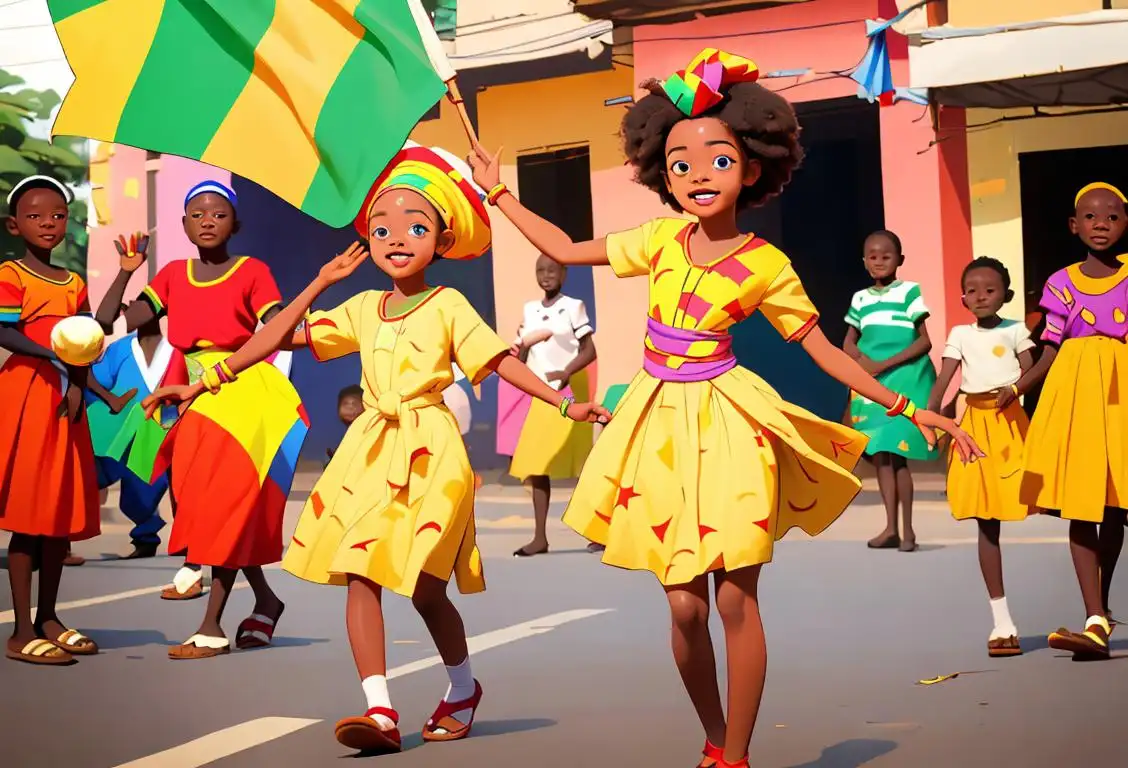National Sovereignty In Ghana Day

Hey there! Get ready to dive deep into the fascinating world of National Sovereignty in Ghana Day, where we celebrate the strength and independence of this incredible nation. From online mentions to fun facts, we've got you covered with all the juicy details!
When is Sovereignty In Ghana Day?
It's national sovereignty in ghana day on the 6th March.
The Journey to National Sovereignty
On this special day, Ghanaians come together to commemorate the historic moment when Ghana gained its national sovereignty. Back in the day, Ghana, formerly known as the Gold Coast, was under British colonial rule. But on March 6, 1957, this vibrant West African nation broke free and emerged as the first sub-Saharan African country to gain independence.
Imagine the excitement and jubilation that filled the air as the people of Ghana celebrated their newfound freedom. It was a turning point in their history and marked the beginning of a new era filled with hope, dreams, and self-governance.
A Time for Reflection and Unity
Today, National Sovereignty in Ghana Day serves as a reminder of the hard-fought battles and sacrifices made by Ghanaian leaders and citizens. It's a time to reflect on the progress made over the years, as well as the challenges that still lie ahead.
One of the key elements of this day is unity. Ghanaians from all walks of life come together to celebrate their country's sovereignty, fostering a sense of national pride and solidarity. From vibrant parades and cultural performances to discussions on the importance of freedom, National Sovereignty in Ghana Day is a day for Ghanaians to stand tall and declare their love for their motherland.
Did You Know?
Did you know that Ghana's national flag, flown proudly on National Sovereignty in Ghana Day and every other day, is filled with symbolism? The red represents the bloodshed during the struggle for independence, the gold symbolizes the country's wealth, and the vibrant green stands for its rich natural resources. It's a flag that tells a story, a story of a nation's journey towards freedom and prosperity.
History behind the term 'Sovereignty In Ghana'
1957
Independence from British colonial rule
In 1957, Ghana became the first country in sub-Saharan Africa to gain independence from British colonial rule. This marked a significant shift in power and set the stage for the concept of sovereignty to become a key aspect of Ghanaian identity. The country's struggle for independence inspired other African nations to fight for their own sovereignty as well.
1960
Formation of the Organisation of African Unity (OAU)
In 1960, Ghana played a pivotal role in the formation of the Organisation of African Unity (OAU), now known as the African Union. The OAU aimed to promote unity, solidarity, and sovereignty among African states. Ghana's commitment to sovereignty and its leadership in the OAU further solidified the importance of sovereignty in the region.
1966
Overthrow of Kwame Nkrumah
In 1966, Kwame Nkrumah, the first President of Ghana and a symbol of African nationalism, was overthrown in a military coup. This event had a profound impact on Ghana's political landscape and raised questions about the balance between national sovereignty and leadership. It marked a turbulent period for Ghana but also highlighted the ongoing struggle to define and protect the country's sovereignty.
1992
Adoption of the Fourth Republican Constitution
In 1992, Ghana adopted the Fourth Republican Constitution, which established a multi-party democracy in the country. This marked a significant step towards consolidating Ghana's sovereignty and ensuring democratic governance. The constitution emphasized the rights and freedoms of citizens and enshrined the principles of sovereignty, rule of law, and separation of powers.
2007
Discovery of offshore oil reserves
In 2007, significant offshore oil reserves were discovered in Ghana, leading to a newfound economic potential for the country. This discovery not only bolstered Ghana's sovereignty in terms of natural resources but also presented new challenges in managing the exploitation of these resources while ensuring sustainable development. The oil industry has since played a significant role in shaping Ghana's economy and national sovereignty.
Did you know?
Did you know that Ghana's national flag, flown proudly on National Sovereignty in Ghana Day and every other day, is filled with symbolism?Tagged
awareness fun historyFirst identified
6th March 2018Most mentioned on
6th March 2018Total mentions
8Other days
Purple Heart Day
Bourbon Day
Teacher Appreciation Day
Random Acts Of Kindness Day
Former Prisoner Of War Recognition Day
Vodka Day
Memorial Day
Liberation Day
Convention Day
Flag Of Canada Day









